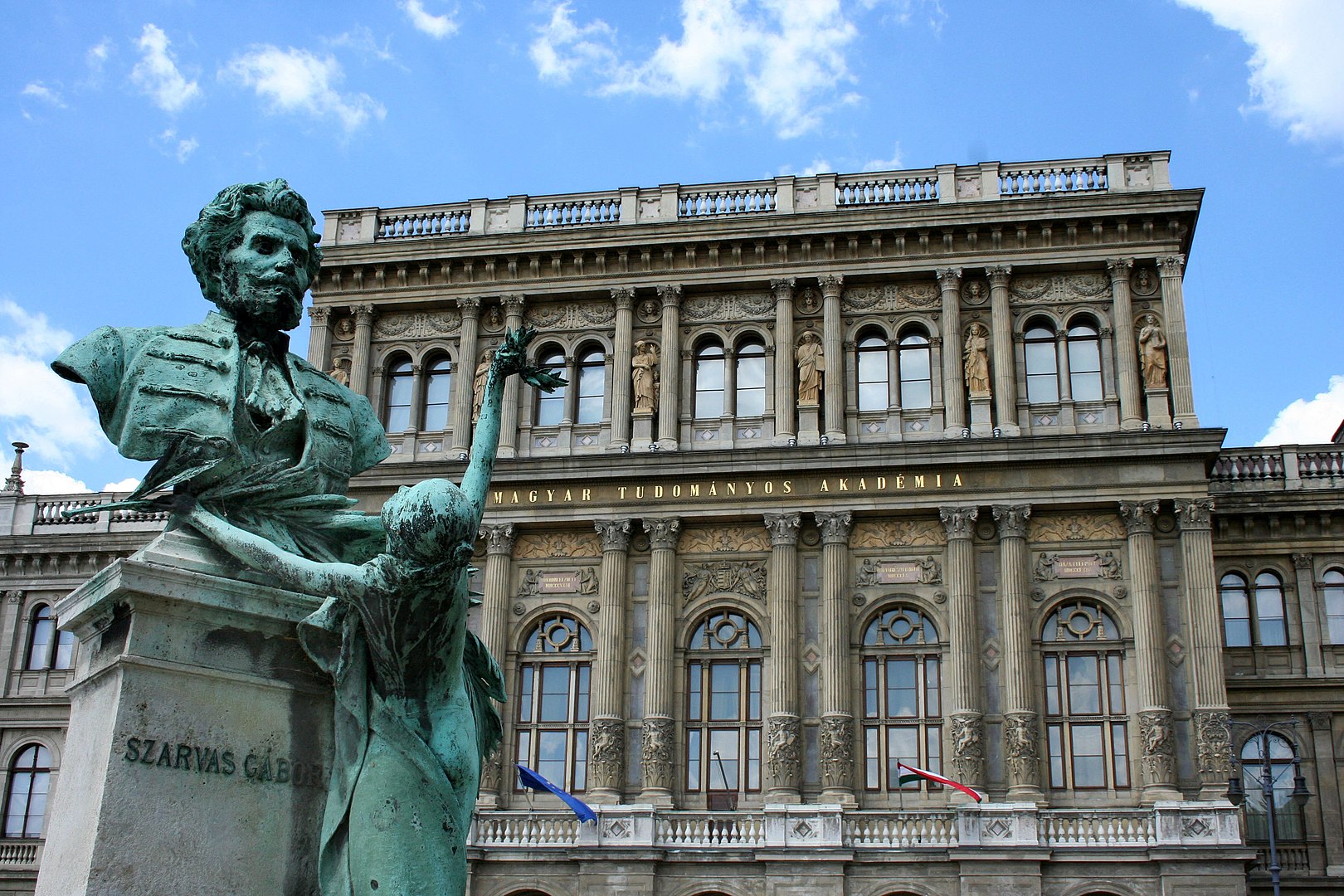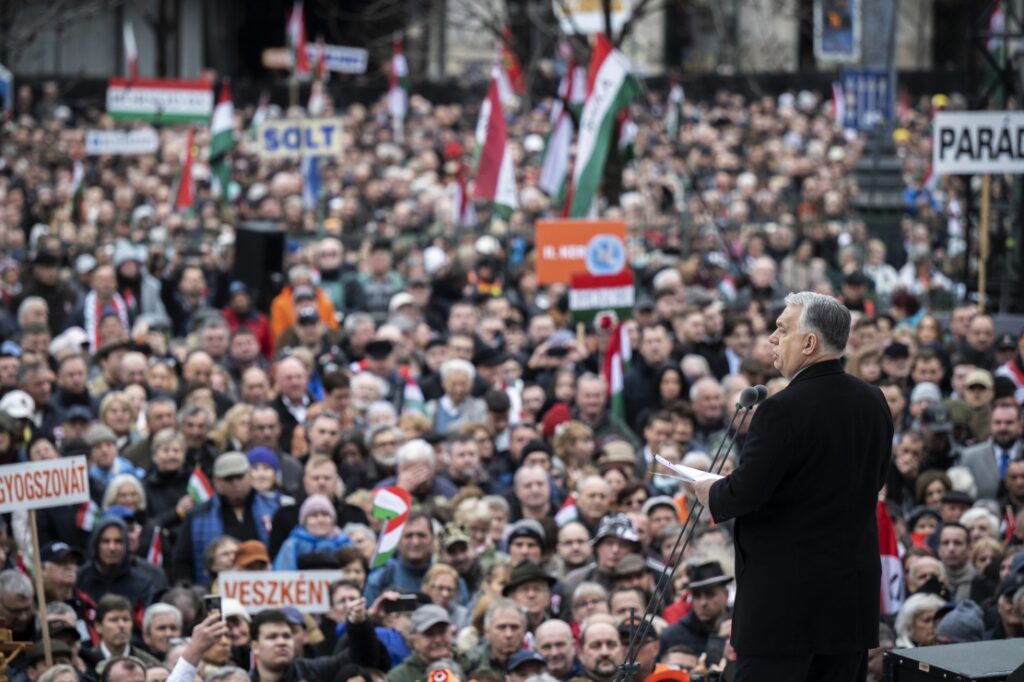
Viktor Orbán gives his annual festive speech in Budapest.Continue reading

The 199th General Assembly of the Hungarian Academy of Sciences (MTA), celebrating the 200th anniversary of its foundation, began today, at which Prime Minister Viktor Orbán will not be present.
The tense relationship between the MTA and the Prime Minister dates back to nearly two months ago, when MTA members adopted a resolution protesting against his speech delivered on March 15. Viktor Orbán said at the national holiday celebration: “The bugs have overwintered. We will clean up the financial machine that has bought itself politicians, judges, journalists, disguised civil organizations, and political activists with corrupt dollars. We will liquidate the whole shadow army.”
The use of the word “bug” has sparked an outcry among the ranks of the opposition, accusing the Prime Minister of dehumanization. Their ranks included the IX (Economic and Legal Sciences) Division of the MTA, whose members, in a statement to Válasz Online, a left-wing news site, at the end of March, said that if the Prime Minister were to appear in person at the jubilee assembly, “it must be expected that a significant number of participants would leave the hall in protest.” As a result, Orbán will not attend the ceremony.

Viktor Orbán during his speech on March 15. Photo: MTI/Miniszterelnöki Sajtóiroda/Benko Vivien Cher
In an opinion piece published in Index, economics professor Csaba Lentner criticizes the academics’ decision, underlining that “nearly four decades after the regime change (1989, end of communism – ed.), a significant part of Hungarian academia has shifted its focus of activity to the domestic political sphere.” The author finds it particularly worrying that, while showing serious opposition to the government, the same academics have been happily accepting high state-funded posts, state honors, as well as honoraria from the state over the years, asking:
Why do they not take the example of the Széchenyi Academy of Literature and Arts, who have expressed their opposition by renouncing all state funding?”
The author analyzes the current functioning of the MTA, pointing out that it does not correspond to the original intentions of its founder, István Széchenyi. The MTA “should serve science, the nation and universal knowledge, based on freedom of research and scientific objectivity,” the expert points out, adding that this is particularly the case for academics in economics and law, who do not set a good example with their political positions and allegedly poor scientific performance.
The article also points out that the MTA receives substantial state funding, with high operating costs and allowances, hence academics should have a legal and moral obligation to carry out high quality scientific work independent of party politics.
The author, criticizing economics and legal academics, argues that these actors operate with outdated, politically biased thinking and methods that are incapable of generating real scientific output, especially at the international level.
There are new intellectual currents and even more dynamic times ahead, to which the current academic intelligentsia should adapt,”
he stresses.
Citing examples of their international achievements, he concludes that the number of their publications in foreign journals in foreign languages is negligible, adding that “the citations they receive are even less favorable.”
Many of today’s academics were, after the fall of communism, advocates of the neo-liberal economic model, which, according to the author, has now failed. Yet they still insist on sticking with it.
This approach, he argues, makes it impossible for new ideas and young researchers to flourish, and even hinders the current government’s economic and social policies.
The opinion piece concludes that the current functioning of the MTA has been distorted into a political role, while its scientific output is in decline. The author therefore calls for a review of the institution, and suggests suspending budget support for honoraria, as he believes that this would allow genuine, meritorious academic performers to remain within the Academy.
Via Válasz Online, Index; Featured image: Wikipedia